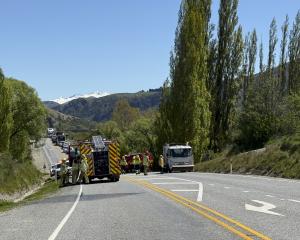Fr Tony Harrison, of St Joseph's Catholic Parish, will work as one of two chaplains at McMurdo Station, on Ross Island, the Antarctic. It will be his third Antarctic experience after trips in 2003 and 2005.
He will leave from Christchurch on September 29, after he completes a battery of medical and dental fitness tests.
Fr Harrison said he was invited to return to the frozen continent by the Christchurch-based co-ordinator of Catholic chaplaincy and would be joined by a chaplain from the United States Air National Guard.
"Throughout the summer season, there are five priests who go down in rotation, and I'm the first up.
"We go in and say a cheery word."
About 1200 international transient scientists, researchers and support staff work at McMurdo Station at the height of the summer season.
The civilian-run township has a sheriff's office, basic hospital, fire station, 10-pin bowling alley and three bars.
They work in 24-hour daylight with outside temperatures averaging -10degC.
Fr Harrison will also brave the elements and minister to the 80 people operating at Scott Base and the 250 working at South Pole Station at the height of the season.
He will conduct daily interdenominational church services, be available for drop-ins at the chaplain's office, and administer the sacraments as required.
Chaplains also provide space for other faiths to worship.
"You've got to be seen around the station. People don't come to you. The dining hall is a good place at breakfast and you go to a different table each day.
"There's the capacity for people to get cabin fever during the winter months, but these days there's all that internet available and it's just a phone call from New Zealand to McMurdo."
Fr Harrison said he was inspired to make the expeditions after growing up in Dunedin in the 1950s.
He saw heavily laden Super DC-3 aircraft fly south from Dunedin and US weather picket ships enter and exit the harbour.
"Going to Antarctica was like going to the moon. Still, now, while there's a large number who go down there yearly, there's only a small percentage of the world who are able to go.
"It's a real privilege to be there."












